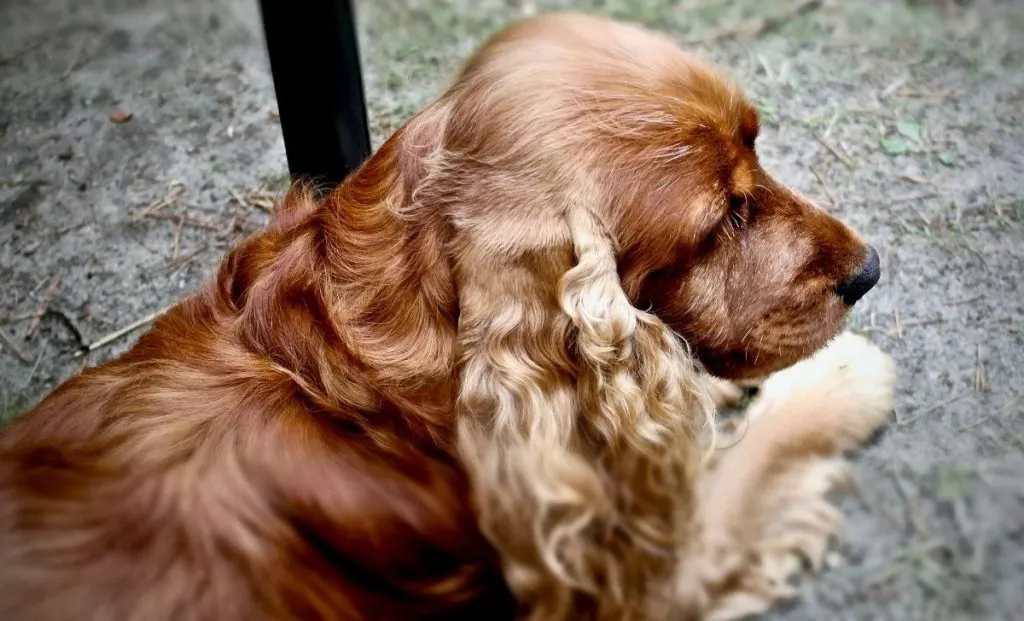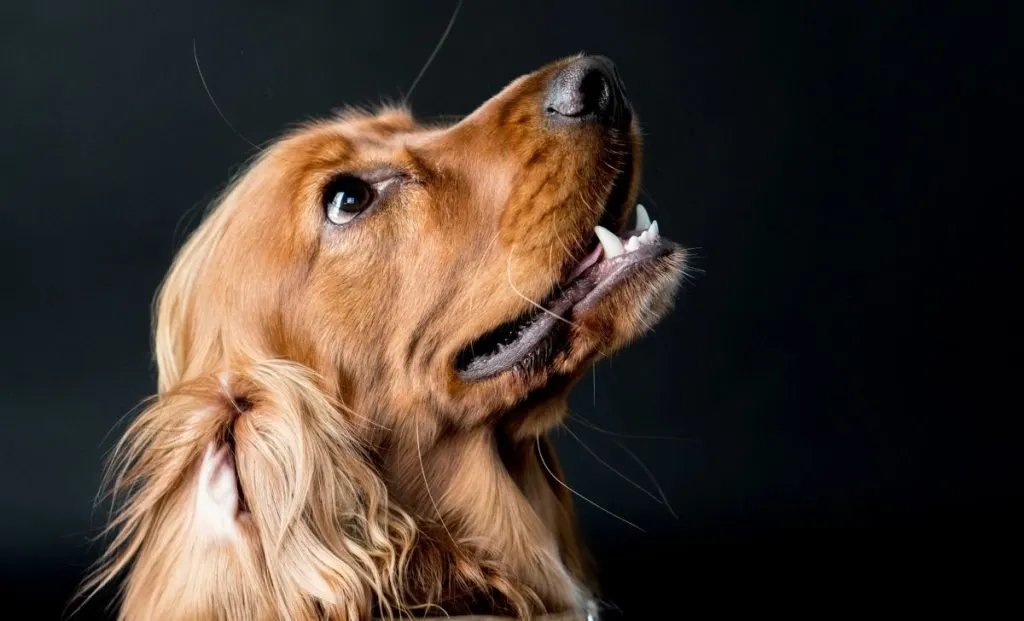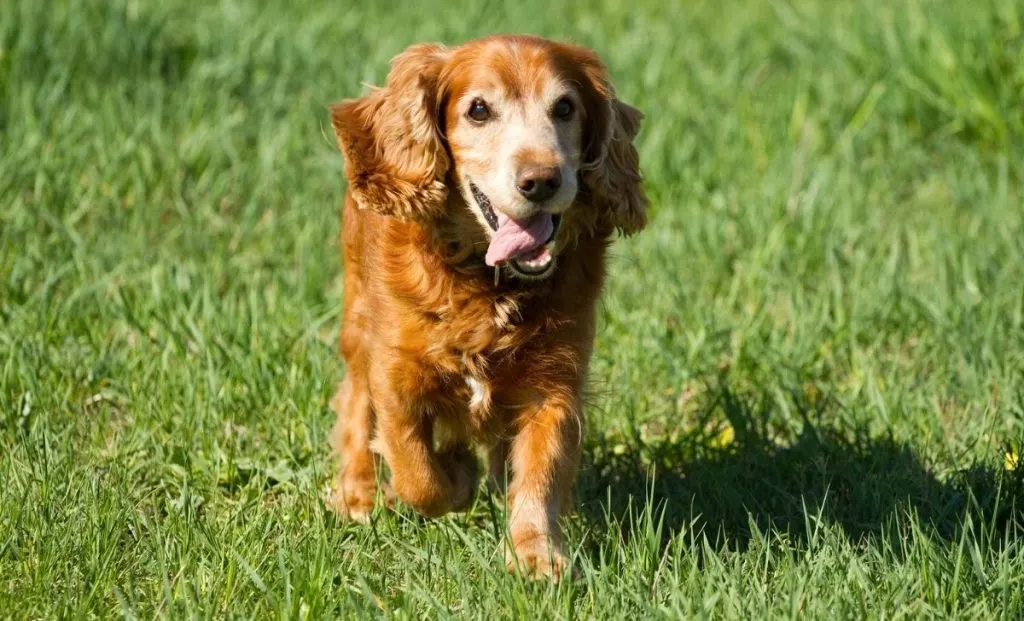What is that stench..? Oh no! Why does my Cocker Spaniel smell so bad?!
Are you having a smelly dog situation? Is there a bad odor coming from the direction of your beloved and otherwise absolutely gorgeous Cocker Spaniel? Don’t panic – I’m here to help!
Cocker Spaniels are little divas among dogs. It seems very unlikely for such a regal dog to be the source of such a foul smell! Sadly, this scenario can occur outside of our nightmares.
Many times, our Cocker Spaniel stinks due to some benign reasons. On a few occasions, though, this can be an indication that something is seriously wrong.
How can you differentiate the dangerous reasons behind the unpleasant smell from the harmless ones? Is there a way to prevent the smell? And, most importantly, why does my Cocker Spaniel smell terribly all of a sudden?
Let’s find out!
1. Ear Infections

One of the first things you should do if you wonder why does your Cocker Spaniel smell is to take a look at his ears.
Cocker Spaniels have long, floppy ears that are prone to infections if not cleaned properly. Fortunately, most of these infections aren’t dangerous, but they can cause discomfort to your dog.
Another reason why the unpleasant odors might be coming from your pup’s ears is the earwax buildup.
In fact, this dog breed’s ears are so long that even food might get stuck in them and cause a bad smell as it starts rotting!
How To Help
Prevention is crucial, so make sure to include ear cleaning in your regular grooming session.
Soak a cotton pad with dog shampoo and water and wipe your dog’s ear with it to remove crust and wax.
If you suspect your Cocker Spaniel has an infection of some sort, take him to the vet to get appropriate treatment, such as a topical antibiotic solution.
2. Cocker Mouth
Have you heard of a cocker mouth? This is what happens when you don’t clean your pup’s mouth often enough, and it’s another possible cause of a distinctive odor on your beloved pet.
Food can build up on your pup’s teeth, leading to tartar accumulation. This can result in a stinky Spaniel!
Take a close look at your pup’s mouth. Is there dog food between his teeth or on the fur around his mouth?
How To Help
Fortunately, this condition shouldn’t require a vet visit. Simply clean your dog’s mouth to remove all the food and dirt.
If crusts have already formed, try using a wet cloth to dampen everything up a bit.
3. Dental Problems

Did you know that more than 80% of dogs older than three have bad teeth?
During grooming processes, many dog owners forget to take care of canine teeth. This results in a huge number of dental problems, such as periodontal disease.
Dental issues are more dangerous than many people would think. Not only will they cause tooth decay, but the bacteria can migrate to the dog’s intestines, causing serious problems.
How To Help
Don’t skip brushing your dog’s teeth during regular grooming sessions!
If your pup isn’t a fan of having a brush in his mouth, there are many treats that can help with dental health.
Also, using dry food from time to time can help remove plaque buildup.
You can always take your pup to a vet check if you suspect the dental disease is getting out of hand.
4. Skin Infections
If the mouth and ears aren’t the source of the foul smell, try taking a sniff at your dog’s skin and crevices, such as between his legs and stomach. Maybe he is having a skin infection.
Even a simple infection on the skin can cause a bad smell, especially if left unnoticed or untreated for a while. As your Cocker Spaniels have long hair, there is a realistic possibility of not noticing an infection until it’s too late.
Look for other signs of infection, such as dander, red skin, or scabs. Also, fungal infections on the dog’s feet can leave your Cocker Spaniel smelling like Fritos.
How To Help
Contact a practicing veterinarian who will give your dog a course of antibiotics or other medications that can help with the infection.
Also, make sure to inspect your fluffy pup’s coat and skin from time to time. Maybe there is something you’re not seeing at the first glance.
5. Kidney Disease

Is your dog’s mouth having a fishy odor? Maybe he is suffering from a kidney disease.
This is a serious health concern that shouldn’t be left untreated. Look for a few more signs of the disease, such as:
- Lethargy
- Loss of appetite
- Increased water consumption and urination
- Vomiting
- Diarrhea
If you notice any of these symptoms combined with a distinctive scent of urine or fish, take your Cocker Spaniel to the vet as quickly as possible.
How To Help
Don’t try to treat this at home!
Kidney disease is a severe health problem that can be fatal. Your veterinarian should provide you with proper medication and treatment plan.
6. Stomach Issues
Is your stinky puppy having gas attacks? Maybe he is having some digestive issues.
Many things can cause an upset stomach, especially in fairly sensitive dogs such as Cocker Spaniels.
A change of food and diet can result in a foul odor coming from your dog as he is silently (or not so silently) passing gas.
Another sign of an upset stomach is if your dog’s poop is smelling really bad.
How To Help
Maybe your Cocker Spaniel is having some food allergies. Try changing his food and see whether this will make the foul smell stop.
Most of the time, a gassy Cocker Spaniel isn’t anything to be concerned about – even though your nose might tell you otherwise.
However, if the gassiness continues for several days or more, try contacting your vet to see if there isn’t some more severe issue.
7. Impacted Anal Glands

All dogs have anal glands that help them mark territory. However, these glands can get impacted, leading to the anal sac disease.
A Cocker Spaniel with impacted anal glands will usually show other symptoms, such as black stools that smell terribly, scooting, and blood or pus coming from your dog’s anus.
How To Help
When anal glands are impacted, your vet will need to manually extract the liquid from the sack and remove any solidified materials. Most of the time, the vet will also prescribe a set of antibiotics to keep the inflammation at bay.
Sometimes, your dog might need sedation. While Cocker Spaniels are calm dogs, even they might snap during this procedure, as the condition itself is very painful.
8. Medication
Certain medications might cause a disbalance in bacteria in your dog’s mouth and guts, leading to a bad smell.
Most of the time, this odor isn’t too bad, but it might still be noticeable.
Luckily, the smell should go away once your pup stops taking the medication.
How To Help
The bad breath or poo smell while your Cocker Spaniel pup is on a course of antibiotics or corticosteroids is typically a normal thing, and, as mentioned, it will pass once your pup gets off them.
Still, if you suspect there is some underlying issue or if the smell is really bad, you can always visit a vet checkup, just to stay on the safe side.
9. Rolling In Stinky Stuff
Finally, maybe the reason isn’t as serious as you might think. Maybe even your otherwise posh Cocker Spaniel has been mischievous and has rolled into some smelly things – such as poop!
All dogs love to roll in stinky stuff, such as dead animals, mud, and poop. This is a part of their natural instincts, and sometimes, there’s not much you can do to stop them.
Some pups go even a few steps further and eat their own poop! Although I have to admit, I have never seen a gracious dog like a Cocker Spaniel do such a heinous thing.
How To Help
Of course, the best course of action would be to have your dog super obedient and always listen to your commands. This way, you would be able to stop him from even doing such a terrible thing!
However, we all know that our beloved pets will sometimes do things they want, no matter what we say or want.
If you wonder Why does my Cocker Spaniel smell?, maybe all he needs is a good bath!
Either way, Cocker Spaniels are amazing dogs that will rarely get into trouble. This doesn’t mean they won’t get smelly from time to time!
Most causes of a stinky Cocker Spaniel are harmless, and the smell itself bothers us more than it bothers our beloved pooch.
Still, if the smell persists, it might not be a bad idea to consult with your vet and rule out any serious health problems.

Vanja’s passion for writing started at an early age, which is why she pursued Journalism as her college degree. She can research any topic and find all the information before you bat an eye, which is a great thing for her job but a terrible one for her husband.
Even as a young child, she fell in love with everything fluffy – but dogs have a special place in her heart due to her childhood companion, a Corgie named Archie.
Motivated by her experiences and driven by a desire to give back to her four-legged companions, she spends her free time volunteering at a local dog shelter.
